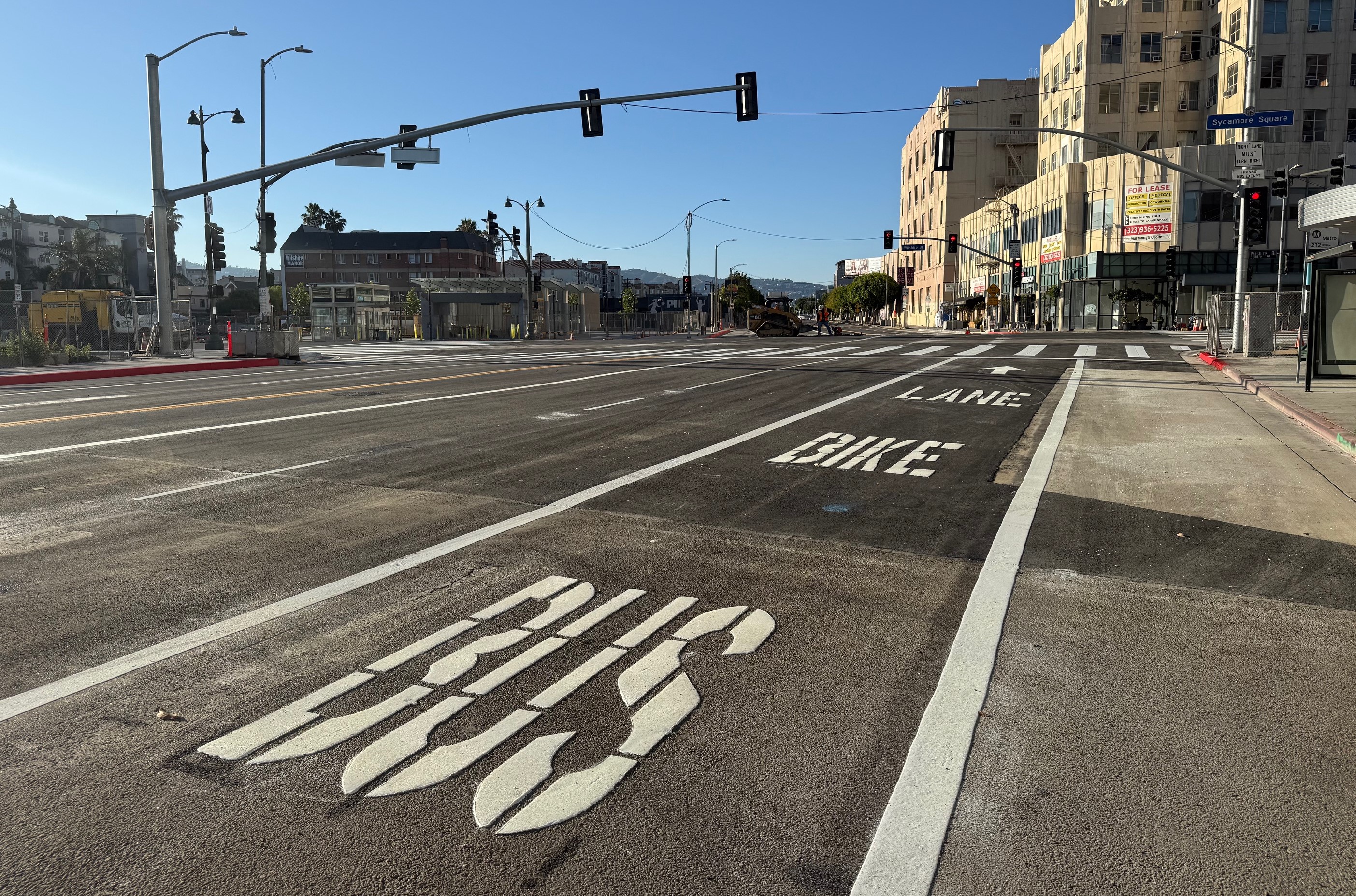The $75 billion House jobs bill, expected to pass later today before the chamber adjourns for the holidays, includes $27.5 billion for roads and $8.4 billion for transit, largely mirroring this year's first economic stimulus law.
 The header of today's House jobs bill: No one ever said they're easy reads! (Image: House Rules Cmte)
The header of today's House jobs bill: No one ever said they're easy reads! (Image: House Rules Cmte)However,
the legislation also makes some small but notable changes to the
stimulus' transportation architecture that only the biggest
transportation wonks might notice. Here is a rundown of just a few:
- Remember those $100 million in stimulus grants that went toparticularly energy-efficient transit projects? The House jobs billwould set aside the same amount from the $8.4 billion transit pool foranother round of awards.
- The first stimulus included "use it or lose it"language that required states to obligate their transportation moneywithin 180 days or risk losing a sizable chunk of the cash. The newHouse jobs bill -- with Florida in mind, perhaps -- cuts that to 90 days, for both roads and transit.
- House transportation committee chairman Jim Oberstar's (D-MN) new six-year federal bill remains stalled,but today's jobs measure assumes a bright future for one element of hisvision: the U.S. DOT Office of Expedited Project Delivery (OEPD), whichOberstar wants to ride herd on massive projects and ensure thebureaucratic process moves smoothly.
- With transit agencies across the countrystruggling to close large deficits in their operating budgets -- thatis, the funds to keep bus drivers in their seats and train ticketwindows open -- the House jobs bill would allow states to use 10percent of their transit money on operating. A similar provision was applied to the first stimulus law after the fact.Theoperating-aid deal was secured by Rep. Russ Carnahan (D-MO) and hailedby the Transportation Equity Network, where executive director LauraBarrett issued the following statement: Thiswill help put transit employees around the country to work, and it willhelp the rest of America get to work. If we really care about jobs,though, we need far more federal funding for public transit. Publictransit creates more jobs per dollar of government spending thanhighway construction or repair. Public transit jobs are the originalgreen jobs, they’re unionized, and they build lives and careers.
- Speaking of Oberstar's stalemate-plagued transportation bill, today's jobs legislation would extend its 2005 predecessor until September 30, 2010.Thatre-up of existing policy would theoretically provide the House andSenate room to work out a deal on a new bill; but if 2009 is any guide,short-term extensions may become the norm as the Obama administrationcontinues to push for a delay into 2011.Separately,the House added a two-month extension of the 2005 federaltransportation bill to a Pentagon budget measure that is a must-pass inthe Senate. That shorter extension is the more likely to become law.
The
House jobs bill addresses the financial future of the nation's highway
trust fund, which has lost money as the gas tax's relative value
shrinks (and also includes money for transit as well as bike-ped
projects).
Near the end of the legislation is language that would follow the lead of a Senate compromise
struck in July. Its main elements: telling the Treasury to transfer
$14.7 billion to highway accounts and $4.8 billion to transit accounts
to make up for years
when the trust fund was blocked from collecting interest. Today's bill
also formally reverses a decade-old bargain and allows interest to
begin accruing once more.






